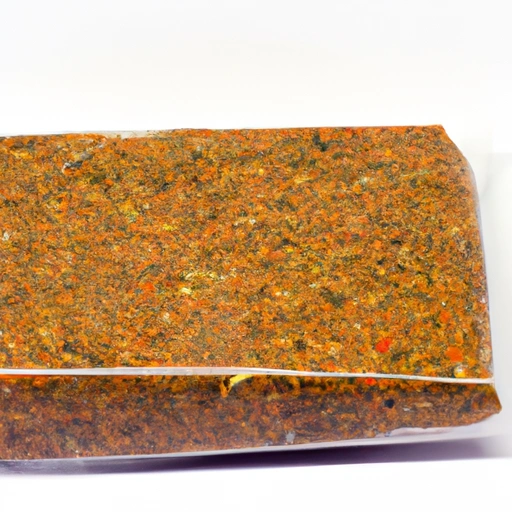Meat Substitute
Description

Meat substitutes, also known as meat analogues or mock meats, are products that resemble the taste, texture, and nutritional value of meat but are made from plant-based ingredients or other non-meat sources. They are designed to provide a similar eating experience to that of meat while being suitable for those following vegetarian, vegan, or other special diets.
Common uses
Meat substitutes are commonly used to replace traditional meat products in a variety of dishes, including burgers, sausages, nuggets, and even seafood. They are versatile and can be found in many forms, such as patties, strips, chunks, and ground products, making them easily adaptable to a wide range of recipes.
Nutritional value
Calories
Calories in meat substitutes can vary widely depending on the ingredients used. On average, a 100g serving may contain around 190-250 calories (794-1,046 kJ).
Protein
Protein content is usually high in meat substitutes, often ranging from 14 to 20 grams per 100g serving, similar to the protein content in actual meats.
Fat
The fat content in meat substitutes can vary from as low as 2 grams to around 10 grams per 100g serving, which is generally lower than that found in animal meat.
Carbohydrates
Carbohydrates in meat substitutes depend on the ingredients and can range from 5 to 20 grams per 100g serving.
Vitamins
Many meat substitutes are fortified with essential vitamins such as B12 and iron, which are naturally found in meat.
Minerals
Common minerals in meat substitutes include calcium, iron and potassium, but levels can vary based on the type of meat substitute and brand.
Health benefits
Meat substitutes are often lower in saturated fat and cholesterol than traditional meats, which can be beneficial for heart health. They can also provide important nutrients like protein, fiber, and various vitamins and minerals that are essential for a balanced diet. Additionally, for those with ethical or environmental concerns, substituting plant-based options for meat can reduce the impact on animal welfare and the planet.
Potential risks
Some meat substitutes may contain high levels of sodium or processed ingredients, which may not be suitable for everyone's dietary needs. As with any food product, it is important to read labels and be aware of any additives or allergens present.
Common recipes
Popular recipes using meat substitutes include vegetarian versions of burgers, meatballs, tacos, and lasagna. They can also be used in stir-fries, sandwiches, and salads.
Cooking methods
Meat substitutes can be cooked using a variety of methods, including grilling, baking, sautéing, and frying, depending on the desired outcome and recipe requirements.
Pairing with other ingredients
Meat substitutes pair well with a diverse range of ingredients and seasonings, from traditional meat accompaniments like barbecue sauce and mustard to more global flavors such as soy sauce, curry spices, and fresh herbs.
Summary
Meat substitutes are a versatile and nutritious alternative to animal meat, offering a similar taste and texture for a range of culinary applications. Whether you're a vegetarian, vegan, or simply looking to reduce meat consumption, meat substitutes provide a satisfying and health-conscious option for your meals.